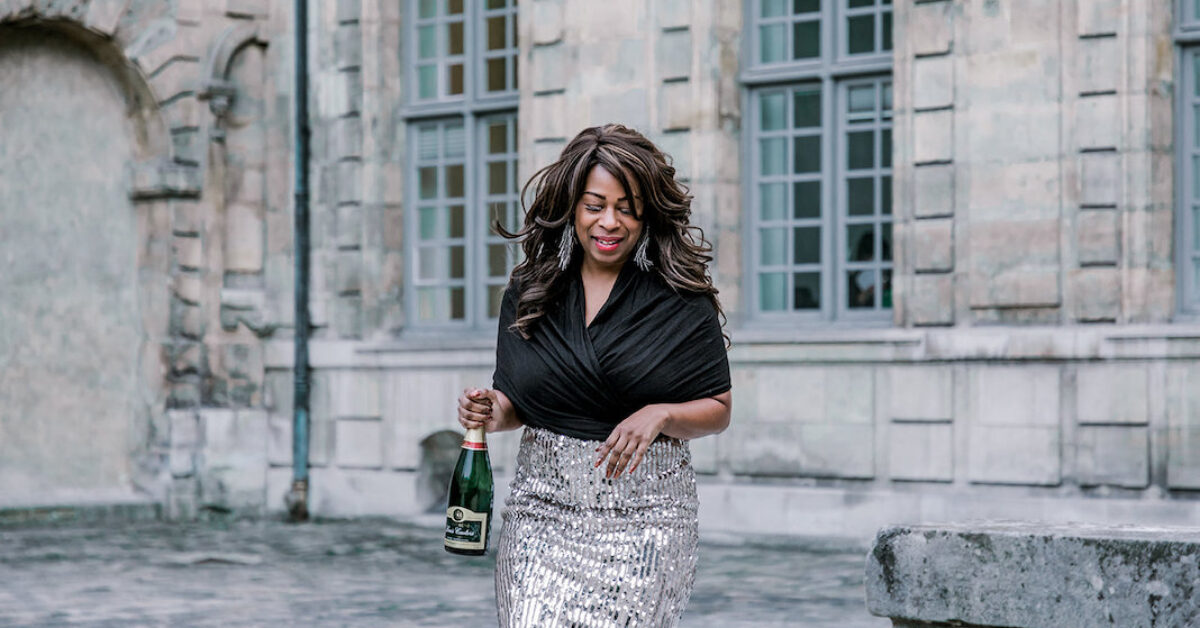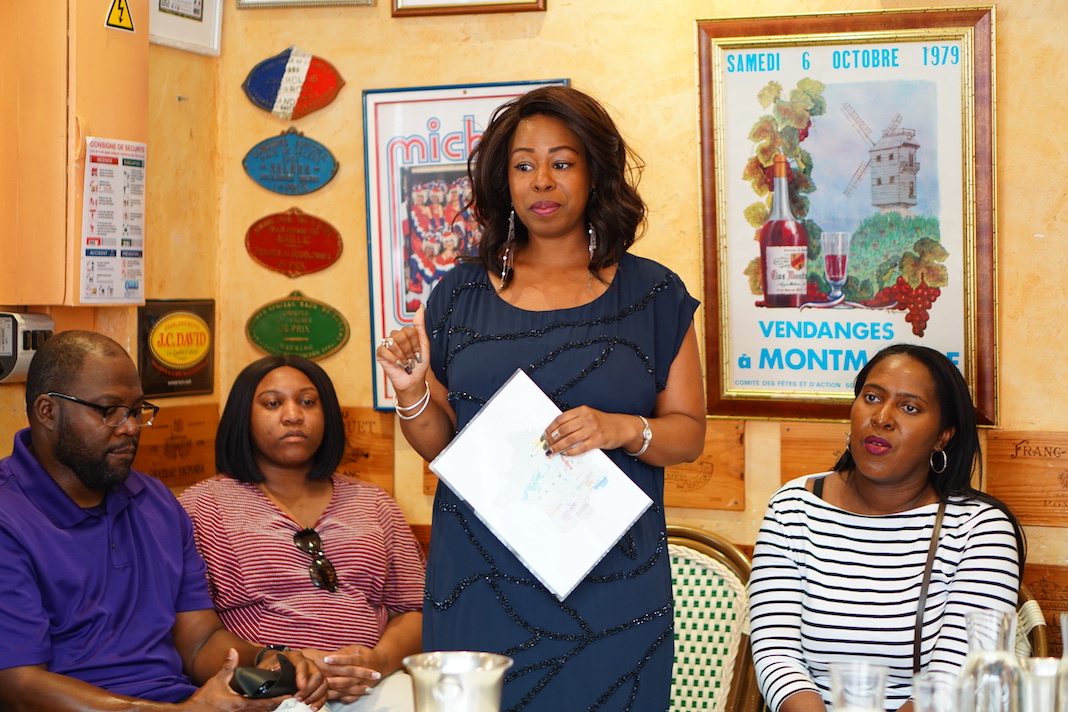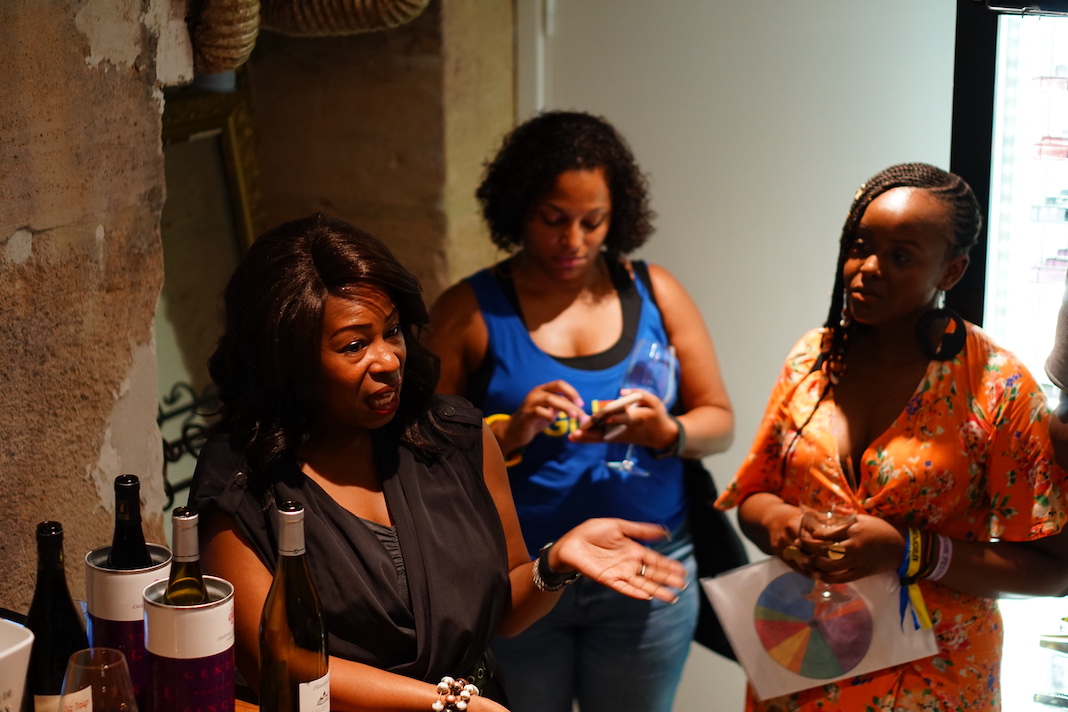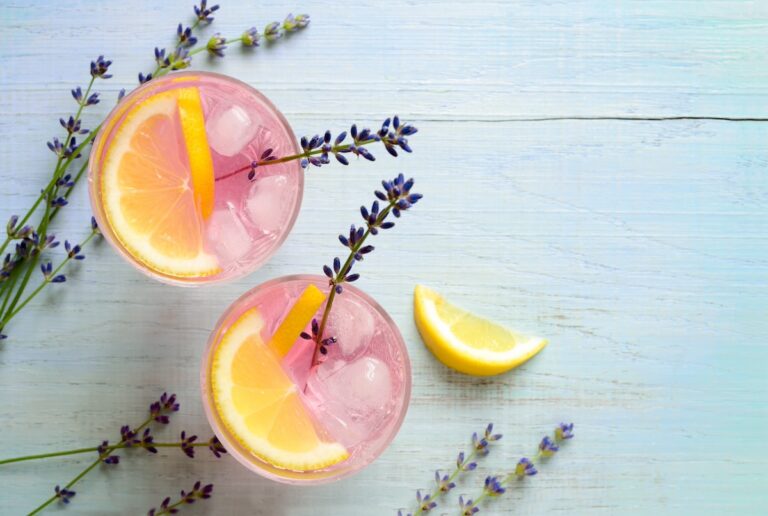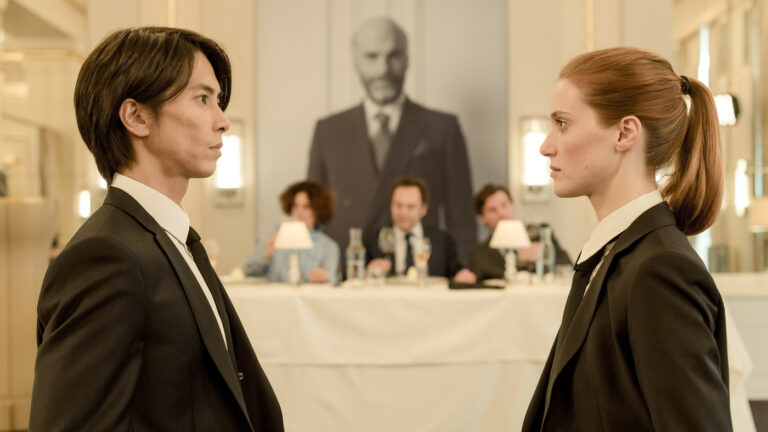“There are a lot of people who don’t think wine is for them, and I think it has to do with race, class, social standing, finances,” explains Tanisha Townsend, the owner of Paris-based wine company Girl Meets Glass. “When they look at wine and the wine industry, they see older white men… but that’s not all that’s in the industry.”
The Chicago native started out in the IT industry, and began going to wine festivals while she was attending grad school in Washington, D.C. (Among them, Maryland’s Wine in the Woods.) She signed up for a WSET course and began working with a local wine company before being asked to teach a course at CMH in Paris. After moving to Paris six years ago, she started attracting attention online through blogs, YouTube, and social media, and decided to start Girl Meets Glass, which offers wine tours, tastings, and private events. Though she had to switch over to virtual events during quarantine, she goes to great lengths to ensure that her guests get exactly what they need, by reaching out directly to their local wine stores or telling them where to order bottles online.
You don’t need to be a wine expert to enjoy good wine
The company, which caters to Americans and Anglophones in France, puts a snob-free premium on education and enjoyment of wine. Many people, “feel that they need to know a lot about wine in order to drink it,” Tanisha says, or that they have to justify their wine choices, or admit that they don’t know what they’re doing. “Because when people are drinking a rum and coke, nobody’s explaining it.” She urges people to feel free to try different things and find out what they like without being afraid of judgment. “There is a bit of a learning curve in figuring out what grapes, what regions, what countries, and which wines you would enjoy. Because everyone isn’t gonna like everything.”
Tanisha is fond of disproving common myths about wine, like the one that says the more expensive the bottle, the better it should taste to you. She points out that, while she might steer clear of certain mass-marketed budget wines, there are plenty of lesser-known, more affordable wines from smaller vineyards that provide decent quality at a more reasonable price… if you’re willing to seek them out.
You don’t have to be old, white and rich to enjoy wine, either. Millennials are drinking more wine than their older counterparts, as those with more disposable income consider it part of the “experience economy,” rather than just a quick way to get drunk.
Diversity in the wine industry
Tanisha wasn’t always as confident as she is now about her role as wine guru for the savvy international crowd. She describes feeling hesitant when she first began attending trade events. “When I would walk into a room, and there would literally be no one else that looked like me, I would play small… I wouldn’t be my normal self.” She talks about being stereotyped and having people assume that “black people don’t drink wine,” or, “only drink sweet wine,” and therefore that she couldn’t be a wine professional. She even modified her accent to try and get the best reaction possible. “I try not to sound too French. I have to add in that little Americanness, or just straight up speak English. Because they want part of the American market.”
But as her connections, knowledge, and confidence expanded, she realized that her differences could be what set her apart from the competition, and that she didn’t have to explain herself to anyone. “I know what I’m talking about, I deserve to be here, I got the invite.”
Wine School Dropout Podcast
https://www.instagram.com/p/CKdxlQ1L7d3/?utm_source=ig_embed&utm_campaign=loading
Tanisha dedicated herself to sharing both wine knowledge and support of BIPOC wine industry professionals in her podcast, Wine School Dropout. The first season, with only 8 episodes at about 10 minutes each, is a fun, bite-sized, and extremely helpful guide to ordering and purchasing wine. She spills secrets on everything from why you shouldn’t order the second-cheapest wine on the menu, to the significance of Chianti in The Silence of the Lambs. And reminds us, of course, that “Wine is for all.”
She has now completed 4 seasons of the podcast. “I wanted to do something to highlight different people, different aspects of [the wine] business, but then also people of color,” she says.
What is Tanisha drinking?
The glass this girl meets with some frequency is one of Grenache, either from Spain or the Southern Rhône and Languedoc regions of France, a spicy, full-bodied, expressive red grape that pairs well with red meat, sausage, and charcuterie.
Catherine Rickman is a writer and professional francophile who has lived in Paris, New York, and Berlin. She is currently somewhere in Brooklyn with a fork in one hand and a pen in the other, and you can follow her adventures on Instagram @catrickman.

